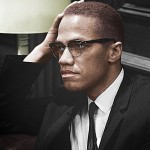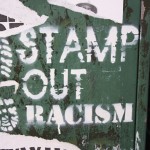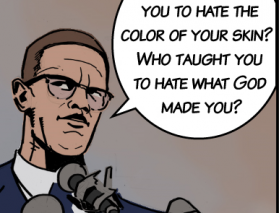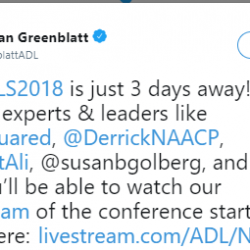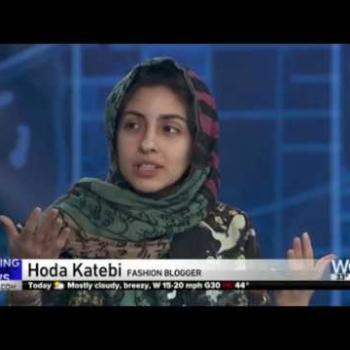
Once upon a time to be Muslim in America was synonymous with black consciousness and automatically connoted a commitment to improving the condition of black life.
Hip-hop mogul Russel Simmons describes his childhood neighborhood as containing, ”a mosque, a rehab and a Steak and Take which was all owned and operated by the black Muslims.” Within his neighborhood, Simmons says he was immensely inspired by brothers in bow ties who sold the Muhammad Speaks newspaper.
Describing his neighborhood as being replete with gang violence and drug trafficking, Simmons states that, “I can guarantee that many of us are alive because of their inspiration.” This narrative entails what it meant to be a black Muslim: a role model for black youth and an individual absolutely dedicated to improving the black community.
As I was listening to a lecture from Imam Siraj Wahaj he further corroborates this narrative of Russel Simmons. In one incident, Imam Siraj Wahaj states that he was in a very tough neighborhood selling Muhammad Speaks newspapers.
Suddenly, he saw two individuals who looked like they were going to rob him. One of the brothers pulled out a gun on Imam Siraj Wahaj but then put it right back. The man told him he just couldn’t bring himself to rob a Muslim and instead he gave him money to purchase a Muhammad Speaks newspaper.
This story demonstrates the immense respect and love that many of the individuals in America’s most marginalized neighborhoods had for Muslims. That respect was garnered from the role of the Mosque in uplifting black life. Black Americans look upon black Muslims for hope and inspiration.
The Changing Face of Islam in America
Imam Amin Nathari discussed that growing up in the Nation of Islam,”meant cleaning one’s self and family up and becoming a model citizen in the community.” However with the emergence of foreign Islamic ideologies, Imam Amin Nathari stated that “to be a Muslim now meant to disregard problems in the black community” and to,”act, eat, and dress as a person from a Middle Eastern country .
For a movement which sought to instill black pride what was most devastating is that even among foreign scholars, Imam Amin Narthari writes that, “Some of them even taught that the Arabs were racially superior to blacks – and thus commanded a higher level of respect.” This had a devastating impact of diminishing the self-worth of black people.
Making a similar observation in Islam and the Black American: Looking toward the Third Resurrection, Dr. Sherman Jackson states that the,”…most lamentable development was the seemingly reversed effect that Islam was exerting on the pathologies and dysfunctionalities of the urban ghetto.” In order to make the Mosque relevant to black people, black Muslims need to begin addressing how we can look within our tradition to reclaim the positive impact that Islam exerted upon the social maladies of the urban ghetto.
Reclaiming the Black mosque
Black folks have certain theological questions and issues they must face coming out of the experience of 400 years of slavery. As a result, we need a unique spiritual nourishment that can only be given by a Imam who is fully cognizant of the social-political and theological issues facing black America. I ultimately believe black Muslims need to establish their own seminary schools in order to produce Imams who are capable of addressing the unique spiritual needs of the black community.
We need Imams who are able to articulate why the seera or prophetic biography is relevant to the black man and woman of America. Additionally, we need to reach our people explaining how in following the Sunnah of Prophet Muhammad(PBUH) young black men and women can overcome the social maladies and traps that the white supremacist power structure seeks to lay out for young black men and women.
Reclaiming Islam for black liberation means telling black folks of the narrative of the Bahia slave rebellion and telling our people the stories of Bilal Lictuan, Shaykh Dandaa, Shaikh Sanim, Malam Bubakar Ahuma and Manuel Calafate. We must began to conduct a study of our west African Muslim ancestors such as Nana Asmau, Uthman Dan Fodio, Ahmad Baba and how they can provide spiritual assistance to black folks in their continued freedom struggle.
We need to look at the struggles and guidance found within Islamic slave narratives of Omar Ibn Said, Abu Bakr, and others. We need to incorporate the spiritual wisdom of our ancestors within khutbas which are given to Black Muslim communities. Also black Muslims need to develop codified and cogent responses to black orientalism.
The days of masjid merely being a prayer place while the congregation has no engagement with the broader black community must come to an end. We need to seek to revive the spirit of Malcolm X within our own selves.
The first time that Malcolm X went to the Mosque he said he was upset that there was so many empty space in the Mosque while the streets were filled with brainwashed black brothers and sisters drinking, fighting, and abusing drugs. He subsequently began going up and down Detroit’s ghettos to invite drug addicts and gang bangers to come into the Mosque.
In order to increase engagement with the broader black community, Islamic centers in the black community should host political education classes which are open to the wider black community. Such political education classes should provide awareness about the pervasiveness of institutional racism and should galvanize the community around certain grassroots efforts in the black community.
The mosque in the black community must become a center for black consciousness and spiritual guidance.

